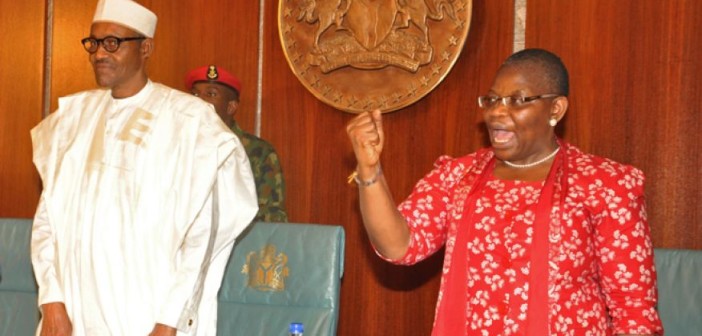Boko Haram is offering to free more than 200 young women and girls kidnapped from a boarding school in the town of Chibok in exchange for the release of militant leaders held by the Nigerian government, a human rights activist told The Associated Press Wednesday.
The activist said the extremist group’s current offer is limited to the girls from the school in northeastern Nigeria whose mass abduction in April 2014 ignited worldwide outrage and a campaign to “Bring Back Our Girls” that stretched to the White House.
The initiative to discuss a deal reopens an offer made last year to former President Goodluck Jonathan to release the 219 students in exchange for 16 Boko Haram detainees, the activist told The Associated Press. The man, who was involved in negotiations with Boko Haram last year and is close to current negotiators, spoke on condition of anonymity because he was not authorized to talk to reporters on this sensitive issue.
Fred Eno, an apolitical Nigerian who has been at the negotiating table with the terror group for more than a year, told The Associated Press “another window of opportunity opened” in the last few days. However, he couldn’t elaborate more on the negotiations. Eno said the latest slew of Boko Haram killings – some 350 people killed in the past nine days – is consistent with past ratcheting up of violence as the militants seek a stronger negotiating position.
Presidential adviser Femi Adesina said Saturday that Nigeria’s government “will not be averse” to talks with Boko Haram. “Most wars, however furious or vicious, often end around the negotiation table,” he said.
The 5-week-old administration of President Muhammadu Buhari offers a “clean slate” to bring the militants back to the negotiating table that had become poisoned by the different security agencies advising Jonathan, Eno said. Two months of talks last year led Nigeria and Eno to travel in September to a northeastern town where the prisoner exchange was set to take place, only to be stymied by the Department for State Service intelligence agency, the activist said.
The number of Boko Haram suspects held by Nigeria is unknown. The activist said the agency continues to hold suspects illegally because it doesn’t have enough evidence for conviction. Nigerian law requires charges be brought after 48 hours. Thousands of suspects have died in custody, and some detainees wanted by Boko Haram may be among them. Amnesty International claims that 8,000 detainees have died in military custody – some have been shot, some have died from untreated injuries due to torture, and some have died from starvation and other harsh treatment.
In that infamous abduction, 274 mostly Christian girls preparing to write science exams were seized from the school by Islamic militants in the early hours of April 15, 2014. Dozens escaped on their own in the first few days, but 219 remain missing. Boko Haram has not shown them since a May 2014 video in which its leader, Abubakar Shekau warned: “You won’t see the girls again unless you release our brothers you have captured.”
There has been speculation some of the girls could have been taken to nearby countries, radicalized and trained as Islamic fighters. At least three were reported to have died – one from dysentery, one from malaria and one from a snake bite.
Lawan Zanna, whose daughter is among the captives, said this week that 14 Chibok parents have died since the mass kidnapping, many from stress-related illnesses blamed on the ordeal. Boko Haram has kidnapped hundreds more — girls, boys, women and young men. Some have become sex slaves, while others are used as fighters, according to former captives.
Nigerian opinion on negotiating with the extremists is mixed. Some say the group’s crimes are too heinous to be forgiven: The 6-year-old Islamic uprising has killed more than 15,000 people and forced about 1.5 million from their homes.
“A lot of people take a hard-line stance that you must never negotiate with a terrorist,” said Sen. Chris Anyanwu. She called it a “very complex” issue, balancing the lives of more than 200 girls against the dangers of freeing extremists.
The militants last year seized a large swath of northeast Nigeria and declared an Islamic caliphate. Nigeria and its neighbors deployed a multinational army that forced them out of towns and villages this year, but the bloodshed has risen at a fierce rate since Buhari’s May 29 inauguration amid pledges to crush the insurgency.




